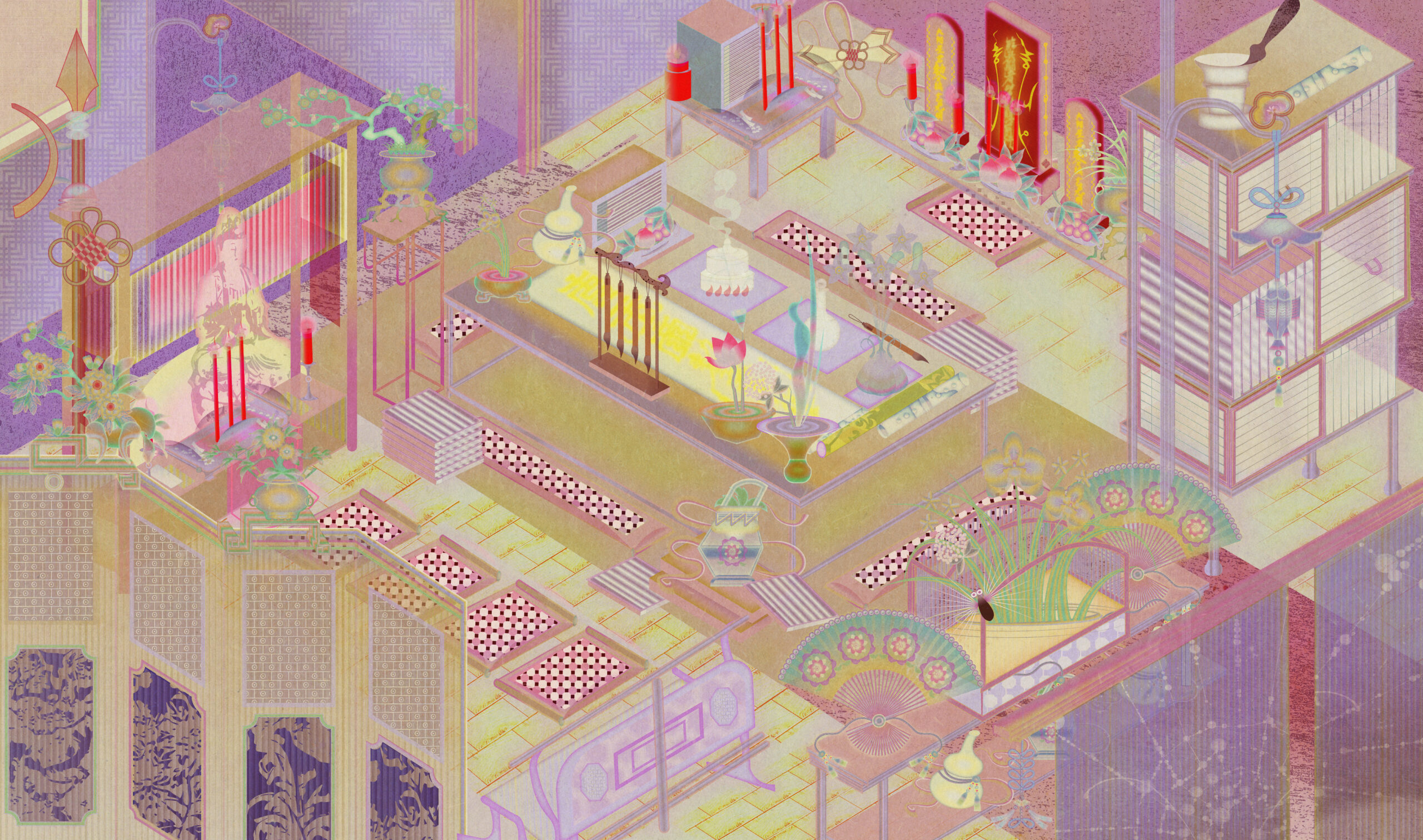ZHAO ZHAO: WALKING NAKED
| August 1, 2011 | Post In LEAP 9

To recognize and identify artworks by Zhao Zhao (b. 1982) in terms of a certain style or medium is virtually impossible. Without prior knowledge, one might assume that Zhao’s current solo show at Alexander Ochs Galleries was in fact a group show of various artists. The pluralism on display is part of the artist’s critical approach: In order to question the construction of meaning, he challenges reality and its ideological conventions, along with cultural stereotypes and the dominance of particular, largely European, art-historical categories.
On show are portraits of stereotypical Chinese people from different historical eras, rendered in a deliberately awkward, realistic manner. Ornamental structures accompany some of the portraits, as well as pictures of sweet little kittens painted in a range of pastel tones. Consciously taking a seemingly innocuous stance, the artist seems to critically comment on innocence and pettiness. Furthermore, the show includes two works from 2010, Thank You Brother-in-Law I and Thank You Brother-in-Law II, two eye-catching monumental paintings of darkskinned bodybuilding ladies that seem to allude to the iconic Pop Art collage, Just what is it that makes today’s homes so different, so appealing? (1956) by Richard Hamilton. Depicting female bodies in sexy bikinis, Zhao has written “thank you brother-in-law” in red Chinese characters at the bottom of the canvas, unveiling an ironic gesture of gratefulness. He deliberately leaves the spectator in the dark about the concrete reasons behind this dedication. Perhaps the artist is rejecting representations of a seemingly objective reality in favor of a more subjective production of meaning. The emphasis on the subjective implies ambiguity and unpredictability, which is deployed recurrently as a subversive strategy throughout his artistic practice.
Originally trained as a painter at Xinjiang Arts Institute, Zhao Zhao soon discovered performance as a medium aptly suited to expressing his concerns. He understands art as a performative, gestural way to provoke as well as mediate alternative realities in pursuit of new subjectivities. In this regard, the title of the Berlin show “Walking Naked” is well chosen, since it refers back to the first performance piece Zhao ever conceptualized. During his time as an art student in Xinjiang, he proposed to walk naked in public in order to challenge the value system of the Muslim population, and to question the dominant local religious ideology.
Zhao Zhao maintains that “aesthetics should give rise to new possibilities,“ which has become a premise in his artistic practice, as well as in his social involvements. The Berlin show includes, among others, the photographic documentation of Zhao’s performative intervention in works by several of his artistic predecessors: Necklace (2007) is a thirty-five bead string necklace made from parts of Joseph Beuys’ famous project 7000 Oaks created for Documenta 7 in 1982; Euro (2008) takes stolen metal from the Anselm Kiefer Library installation formerly on view in the main hall of the Hamburger Bahnhof and casts it into a one-Euro coin.
In Zhao Zhao’s understanding, art should engage people and trigger direct reactions and processes that heighten self-consciousness. In 2007 the artist realized the site-specific performative installation Cobblestone, in which he glued a stone onto some of China’s most sacred ground, causing passersby to stumble. The presentations of such interventions that playfully induce incidents of self-reflection and critical engagement come with a great deal of urgency at present. In the amazingly spacious new white cubes of Alexander Ochs Galleries located in the hip gallery district of Kreuzberg, Zhao’s works are an important contribution, and inviting the local Berlin audience to get to know a critical artistic position from China that differs refreshingly from the usual suspects associated with contemporary Chinese art around here. Birgit Hopfener


